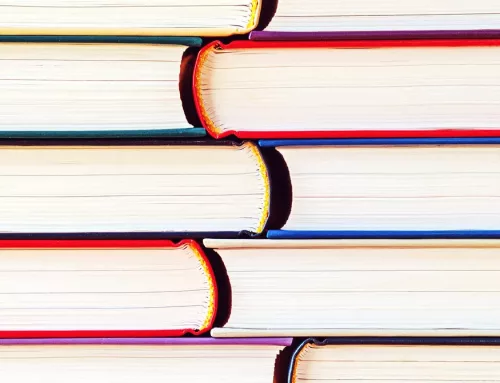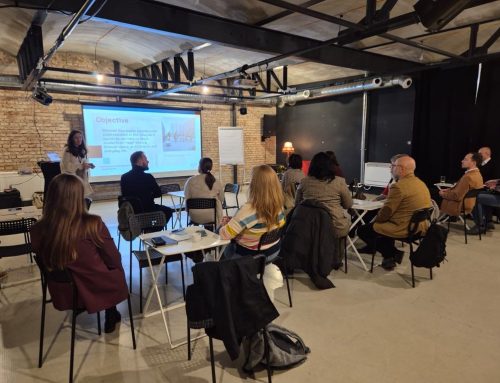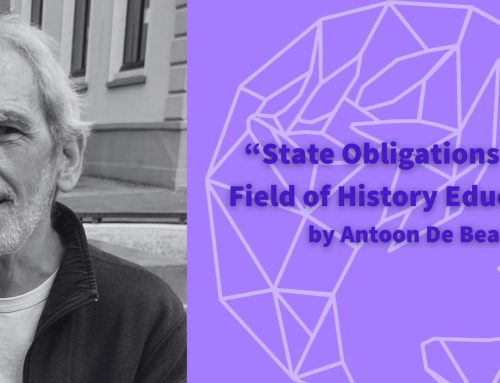In 2012, a group of Russian and Polish historians joined hands to come up with a transnational approach to historical issues that could help overcome mutual stereotypes. Their collaboration resulted in a Polish-Russian companion to history for teachers in Poland and Russia, which is made available online for free.
Polish professor Mirosław Filipowicz was head of the Institute of East-Central Europe (IEŚW) in Lublin, one of the main organizations behind the project. Filipowicz wanted to revive Polish-Russian dialogue, which had already been initiated a few years earlier by the Polish-Russian Group for Difficult Matters. After the Russian annexation of Crimea, however, the work of the Group stopped. Before, they had published a collection of parallel histories by Polish and Russian scholars who recounted each country’s version of important historical events. In addition, Filipowicz wanted historians from both countries to combine their perspectives by working and writing together.
Filipowicz was appointed as the new co-head of the Group for Difficult Matters by the Polish Minister of Foreign Affairs in 2016. But unfortunately, the IEŚW was closed down by the Polish government in December 2018. It’s staff was expelled from work, and Filipowicz resigned from the position in the Group. Now there is no official scholarly channel for Russian-Polish historical dialogue.
I talked to professor Filipowicz about the importance of such dialogues, and the problems he encountered when working on these educational materials.
Jilt Jorritsma: Why was this shared Polish-Russian history necessary – why now?
Mirosław Filipowicz: History of Polish-Russian relations has never been easy, but after 1989 (collapse of communism in Poland and the whole region) and 1991 (collapse of the Soviet Union) the problem of Polish-Russian peaceful and normal coexistence became even more crucial than before. One of the best ways to overcome old stereotypes is solid and openminded education.
When thinking of initiating our project, I had two goals to achieve. One addressed to Russians: to enlarge empathy there for Polish sensitivities. The other of more domestic nature: to help Polish pupils/students to understand the other – in this case, to help us understand Russians. When we initiated the project in 2012, this was quite important. Now, after the Smolensk catastrophe (in 2010 ed.) and with right-wing ‘patriots’ at power here in Poland, this task is of greater importance: not only to produce historical knowledge, but also to have present impact.
I was quite surprised when the Polish Minister of Foreign Affairs in his first expose before Polish Parliament in 2018 mentioned our project as the only positive achievement in Polish-Russian present relations.
JJ: How did you ensure that local histories, contexts and sentiments were not overlooked in a broader, transnational frame of analysis?
MF: History, as I look at it, is a combination of broader perspectives and of more human, ‘micro-historical’ details. It’s not good when one of these elements is missing. So we have tried not to overlook the particular human beings (both Russians and Poles) when writing this companion for teachers. We also tried to put the history of Polish-Russian relations in the broader context of European history.
JJ: Were there any (methodological or substantive) problems when working together with scholars from another country?
MF: Sure, there were many difficulties. First, I was under the impression that for Russian colleagues (not for Russian authors, but for their supervisors from the Academy of Science) our project had more political importance than for us. I was positively impressed by the work Polish and Russian historians and teachers have done together. But later the Russian ‘editorial team’ proposed so many changes that we felt it was not a revision, but censorship instead.
The only way to overcome such tendencies was persuasion. When they started to understand that we were not politicians, things became a little bit easier. One funny situation took place when we discussed the chapter concerning mutual stereotypes. Someone from the Russian supervisors felt indignant, so both Russian and Polish authors had to explain to him that the stereotype analysis was not the same as stereotype reinforcement – just the opposite.
JJ: Were there academics involved from countries other than Russia or Poland – what was their role in the process?
MF: Sometimes we asked some German colleagues for advice. They have a long history of both German-Russian and German-Polish historical dialogue. That was useful for us. And, to our surprise, our project, when we published the first two volumes, appeared to be interesting not only for our Belorussian colleagues, but also for Japanese and South-Korean historians and historical educators. They found useful methodological patterns for their own historical dialogue.
JJ: How do you ensure that the publications will be widely used by teachers in both countries?
MF: We have no guarantee that the companion we prepared will be introduced in Russian schools. In Poland, fortunately, the question is of less bureaucratic nature and if teachers are interested, they can use our materials. All the results, both in Russian and in Polish, are available online and free of charge. That’s the most easy way to make the results useful for teachers.
JJ: How did you take the different teaching environments in both countries into consideration during the production of these didactic aids?
MF: That was a real problem. Even though Russian history and history of Polish-Russian relations is essential for Polish history, we cannot say this is also true the other way around. That’s obvious: Russia is much bigger than Poland and has many more neighbors, not only European. But after many visits to Moscow, I can tell that Poland is very important for many Russian people and is quite interesting to them. When working on the companion we had to keep both Polish and Russian school programs in mind. If teachers would like to use our books, they can do so, even if just for some additional lessons or school activities.
JJ: How can a transnational approach help overcome stereotypes in the classroom?
MF: We had a unique experience to visit Moscow schools and to work with Russian teachers. As far as I know, that was really the first time when Polish historians could work with Russian history teachers. It was quite fantastic opportunity for both sides. Russian colleagues visited our schools here in Poland as well.
Normal contacts – that’s the first step to overcome stereotypes. And later: talks, readings, discussions.
The third and last volume of the shared Russian-Polish history (which focuses on the 20th century) will still hopefully be published later this year: www.polska-rosja.eu
Written By Jilt Jorritsma, EuroClio Former Research trainee.













